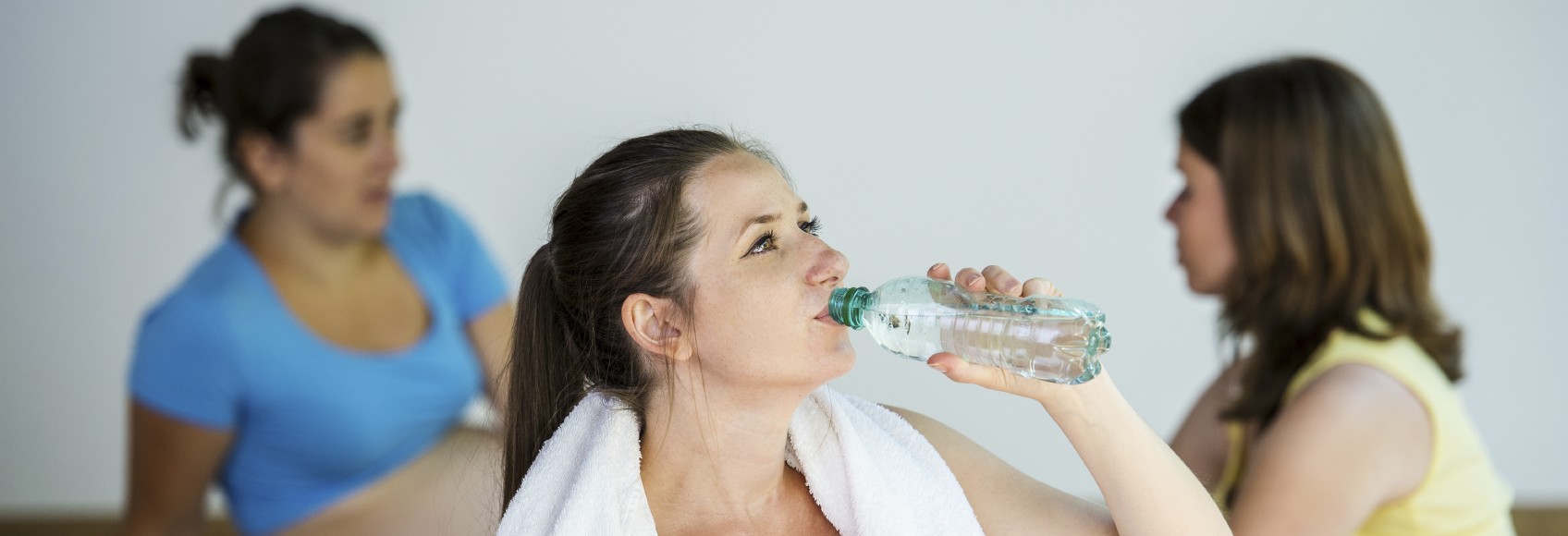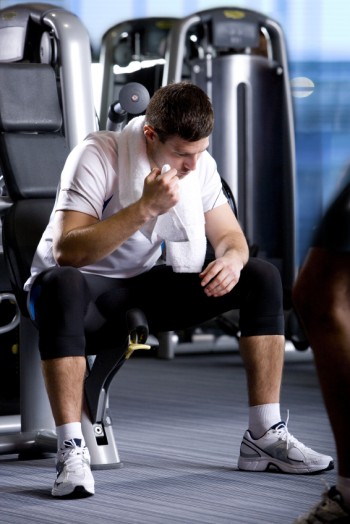
What do you do when you’re finished exercising? If you’re like many people, you do one of two things.
If you’re really satisfied with your workout, you’re on an adrenaline high. Thus, you do what happy people do — celebrate. That might mean rewarding yourself with a delicious meal. After all, you just lost a lot of weight. What’s the harm in eating good food? Exercising and eating both make you happy. It’s a win-win day for you.
 If the workout has left you exhausted, you might do something else — relax, or at least try to relax. You might sit down against a tree as soon as you have finished running and try to regain your breath. Or you might lie down and do absolutely nothing. Or you might walk into your house and take a nap.
If the workout has left you exhausted, you might do something else — relax, or at least try to relax. You might sit down against a tree as soon as you have finished running and try to regain your breath. Or you might lie down and do absolutely nothing. Or you might walk into your house and take a nap.
If you celebrate or relax when you have finished exercising, you are making a big mistake. In fact, the mistake is so big that it could be your last mistake. That’s not hyperbole, that’s fact. Exercising intensely one second and not exercising at all the next second is so dangerous that it can actually kill you.
“During a hard exercise session, blood is pumped through the body at a rapid pace,” reports the article “Cool-down Time Needed After Workout.” “Stop suddenly and you could experience what is known as the “pooling effect.“ Influenced by gravity, blood collects in the larger vessels below the waist, robbing the heart of a sufficient supply of nourishment. Blood pressure can drop precipitously and cause trouble.”
“Trouble” can mean dizziness and fainting. It can also mean heart trouble. When blood in the legs doesn’t reach the heart, you are susceptible to a heart attack. In fact, Dr. Kenneth Cooper, one of the USA’s most renowned exercise experts, told the author of the “Cool-down Time” article that more people experience heart problems during the recovery period after exercising than during the exercise. You can reduce your risk of a heart attack after you exercise by cooling down properly.
Tips for Cooling Down
- Keep Exercising When Your Intense Exercise Ends: You should gradually reduce the intensity of your exercise for five to 10 minutes before stopping. If you just finished running fast, jog slowly for five to 10 minutes after crossing the “finish line.” If you just finished bicycling fast, bike slowly for five to 10 minutes. Walk slowly for five to 10 minutes if you just finished a fast walk. You get the point.
- Stretch Your Muscles: You can walk, jog slowly, or bike slowly for 10 minutes or you can do those exercises for five minutes and stretch for five minutes. Of course, you can do cooldown exercises for more than 10 minutes, but let’s not go too fast right now! You will benefit the most from stretching your arms, shoulders, upper back, neck, hamstrings, calves, and quadriceps.
The Men’s Fitness magazine article “5 Ways To Cool Down After A Workout” reports that stretching:
- Makes your muscles more flexible.
- Decreases the soreness in your muscles, particularly your calves, hamstrings and quads.
- “Expedites the healing process.” Basically, intense exercises cause minor tears in your muscles. You generally need to rest your exercised muscles for 48 hours before exercising again, but stretching can reduce your rest time.
- Drink Water: Water replenishes the fluids you lost during your exercise. It also helps increase your strength and reduce the soreness in your muscles. The “5 Ways” article recommends that you drink enough water during your cool down to regain the weight that you lost during your exercise plus another 25 to 50 percent of the weight you lost to replace the urine you are going to lose. In other words, you should drink 20 to 24 ounces of water if you lost one pound — 16 ounces to regain weight and four to eight ounces to replace the urine.
- Monitor Your Heart Rate: During an intense exercise, your heart rate should be 70 to 85 percent of your maximum heart rate. Your maximum heart rate is 220 heartbeats per minute minus your age. If you are 30 years old, your exercise heart rate should be 133 to 161.5 heartbeats per minute. You should take your pulse as soon as you finish exercising. You should keep cooling down until your heart rate drops close to its resting rate, which should be about 60 to 80 beats per minute.
- Prepare For Next Exercise: Cooper recommends exercising less intensely the next time you exercise if your heart rate doesn’t drop enough within the first five minutes after your intense exercise. If you are under 50 years old, you should reduce the intensity of your exercise if your heartbeat five minutes into your cooldown is above 120 beats per minute. If you’re older, the magic number for exercising less intensely is 100 beats per minute.


